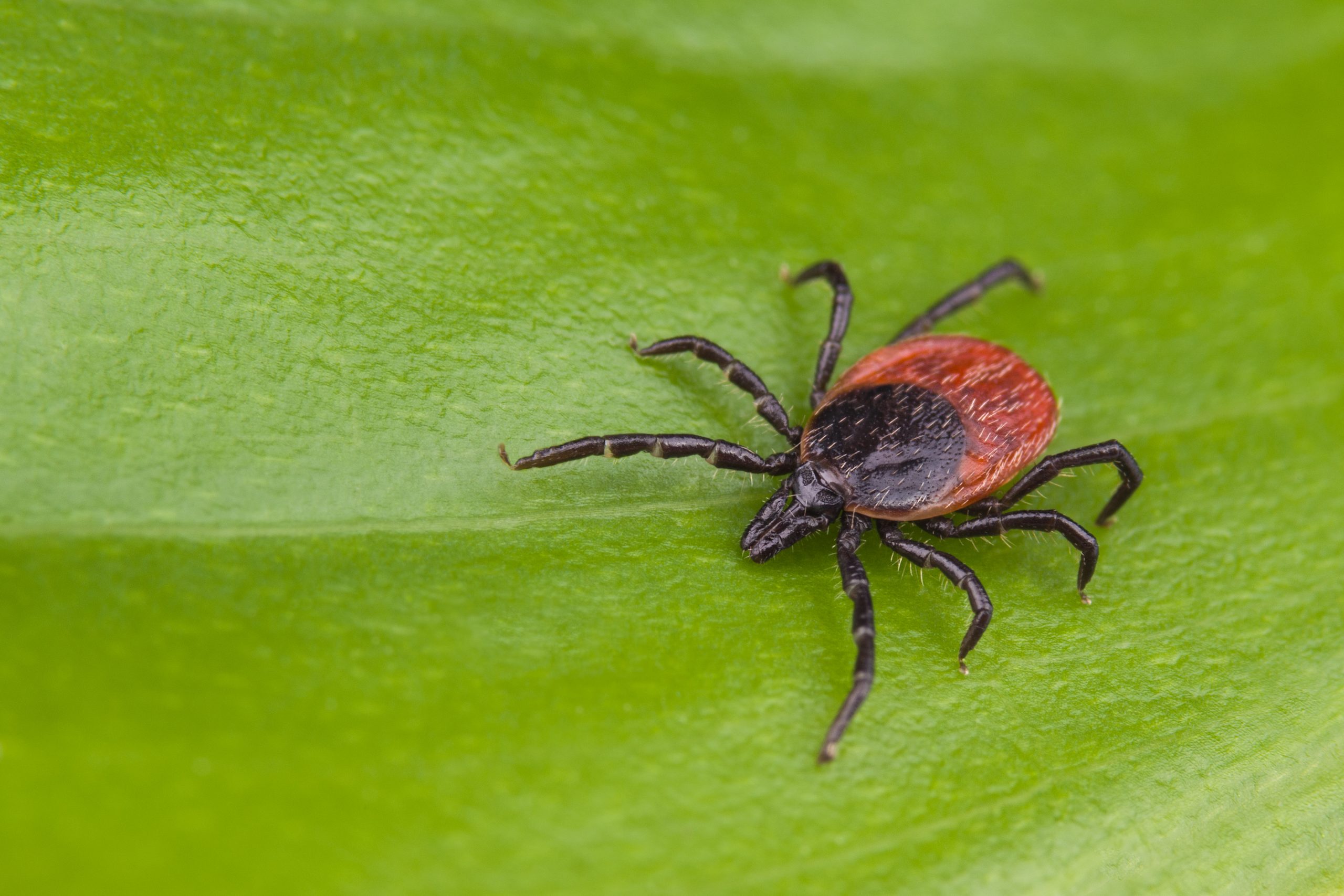DPH Recognizes May as Lyme Disease Awareness Month
Delaware Health and Social Services | Division of Public Health | Newsroom | Date Posted: Friday, May 10, 2024
Delaware Health and Social Services | Division of Public Health | Newsroom | Date Posted: Friday, May 10, 2024

As warmer weather brings people outdoors and potentially in contact with ticks, the Delaware Division of Public Health (DPH) is recognizing Lyme Disease Awareness Month this May. According to DPH’s Office of Infectious Disease Epidemiology, Lyme disease is the most common tick-borne disease in Delaware, with over 300 cases reported each year.
Lyme disease is spread by the bite of an infected blacklegged tick (also known as a deer tick). The tick must remain attached for 24 or more hours to spread the bacteria. In some cases, a rash resembling a bullseye will appear near the site of the bite. If an expanding rash with a diameter of more than two inches appears or flu-like symptoms occur over a 30-day period following a tick bite, individuals should contact their health care provider immediately.
“Because ticks are found outdoors in most areas of Delaware, Lyme Disease Awareness Month is an opportunity for DPH to educate Delawareans about the importance of tick bite prevention,” said DPH Director Steven Blessing. “By taking simple precautions, individuals can protect themselves and their families while enjoying the outdoors.”
If you find a tick on yourself or a friend or family member, make sure to use tweezers to grab the tick as close to the skin’s surface as possible and pull upward. Never use folklore remedies like “painting” the tick with nail polish or petroleum jelly or using heat to make the tick detach from the skin. Your goal is to remove the tick as quickly as possible.
To avoid tick bites:
To practice tick safety at home:
For more information about Lyme disease and tips for preventing tick-borne illnesses, visit the DPH Lyme disease webpage at https://www.dhss.delaware.gov/dhss/dph/epi/lyme.html and Delaware’s Lyme Disease Education Oversight Board’s webpage at https://www.lymediseaseeducation.org/.
Keep up to date by receiving a daily digest email, around noon, of current news release posts from state agencies on news.delaware.gov.
Here you can subscribe to future news updates.
Delaware Health and Social Services | Division of Public Health | Newsroom | Date Posted: Friday, May 10, 2024

As warmer weather brings people outdoors and potentially in contact with ticks, the Delaware Division of Public Health (DPH) is recognizing Lyme Disease Awareness Month this May. According to DPH’s Office of Infectious Disease Epidemiology, Lyme disease is the most common tick-borne disease in Delaware, with over 300 cases reported each year.
Lyme disease is spread by the bite of an infected blacklegged tick (also known as a deer tick). The tick must remain attached for 24 or more hours to spread the bacteria. In some cases, a rash resembling a bullseye will appear near the site of the bite. If an expanding rash with a diameter of more than two inches appears or flu-like symptoms occur over a 30-day period following a tick bite, individuals should contact their health care provider immediately.
“Because ticks are found outdoors in most areas of Delaware, Lyme Disease Awareness Month is an opportunity for DPH to educate Delawareans about the importance of tick bite prevention,” said DPH Director Steven Blessing. “By taking simple precautions, individuals can protect themselves and their families while enjoying the outdoors.”
If you find a tick on yourself or a friend or family member, make sure to use tweezers to grab the tick as close to the skin’s surface as possible and pull upward. Never use folklore remedies like “painting” the tick with nail polish or petroleum jelly or using heat to make the tick detach from the skin. Your goal is to remove the tick as quickly as possible.
To avoid tick bites:
To practice tick safety at home:
For more information about Lyme disease and tips for preventing tick-borne illnesses, visit the DPH Lyme disease webpage at https://www.dhss.delaware.gov/dhss/dph/epi/lyme.html and Delaware’s Lyme Disease Education Oversight Board’s webpage at https://www.lymediseaseeducation.org/.
Keep up to date by receiving a daily digest email, around noon, of current news release posts from state agencies on news.delaware.gov.
Here you can subscribe to future news updates.